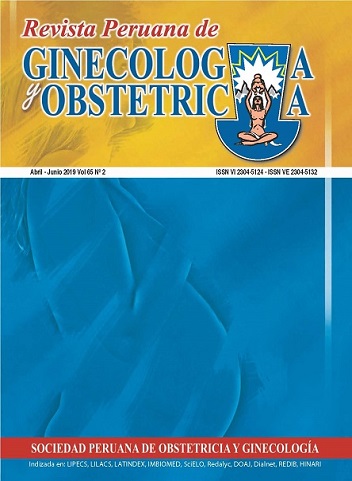Use of both the Time-Lapse technology and the KIDScore 5 predictive algorithm helps to improve selection of euploid embryos for transference
DOI:
https://doi.org/10.31403/rpgo.v65i2173Abstract
Objectives: To determine if the use of the KIDScore 5 algorithm (known implantation data) can help select between euploid embryos in order to improve pregnancy and implantation rates in patients undergoing assisted reproductive procedures. Methods: Retrospective cohort study in a fertility clinic, from October 2016 to December 2018, of 1 049 embryos from 328 patients. All the embryos were cultured in the Time-Lapse, Embryoscope® incubator (Vitrolife®, Canada) for 5-6 days. Of these, 896 embryos (85.4%) were biopsied and analyzed by NGS, and assessed with the predictive KIDScore 5 algorithm (Vitrolife®, Canada). The 153 remaining embryos (14.6%) were assessed with the predictive KIDScore 5 algorithm only. 256 single euploid embryos were transferred in couples undergoing IVF treatments at the Inmater clinic’s laboratory of assisted reproduction in Lima – Peru. Results: The implantation rate was significantly higher (p = 0.004) in euploid embryos transferred when selected by the KIDScore 5 algorithm (Group 2) versus those selected using only genetic study by NGS technology (Group 1) (71.2% vs. 48.8%). The rate of implantation of the euploid embryos transferred with KIDScore value = 6 versus those transferred with KIDScore = 1 was statistically different (73.5% vs. 50.8%; p = 0.030). When assessing the relationship between the rate of euploid embryos versus the result of the KIDScore 5 value, we found highly significant differences in the rates of euploid embryos with values 6 and 5 versus those with KIDScore 0 and 1 (60.5% vs. 45.7%; p = 0.0004). Conclusions: The embryo selection with the KIDScore 5 algorithm offers advantage on implantation and pregnancy rates only when euploid embryos are transferred. Its use as an additional criterion to embryo selection should be considered when accompanied by genetic study of the embryos to be transferred. Euploid embryos with a higher value in the KIDScore 5 algorithm scale have better rates of implantation and euploidy than embryos with the minimum value of this algorithm.Downloads
Download data is not yet available.
Downloads
Published
2019-05-09
How to Cite
Gazzo, E., Peña, F., Valdez, F., Chung, A., Bonomini, C., Ascenzo B., M., Velit, M., & Escudero, E. (2019). Use of both the Time-Lapse technology and the KIDScore 5 predictive algorithm helps to improve selection of euploid embryos for transference. The Peruvian Journal of Gynecology and Obstetrics, 65(2), 189–195. https://doi.org/10.31403/rpgo.v65i2173
Issue
Section
Simposio: Avances en biología en reproducción asistida
















